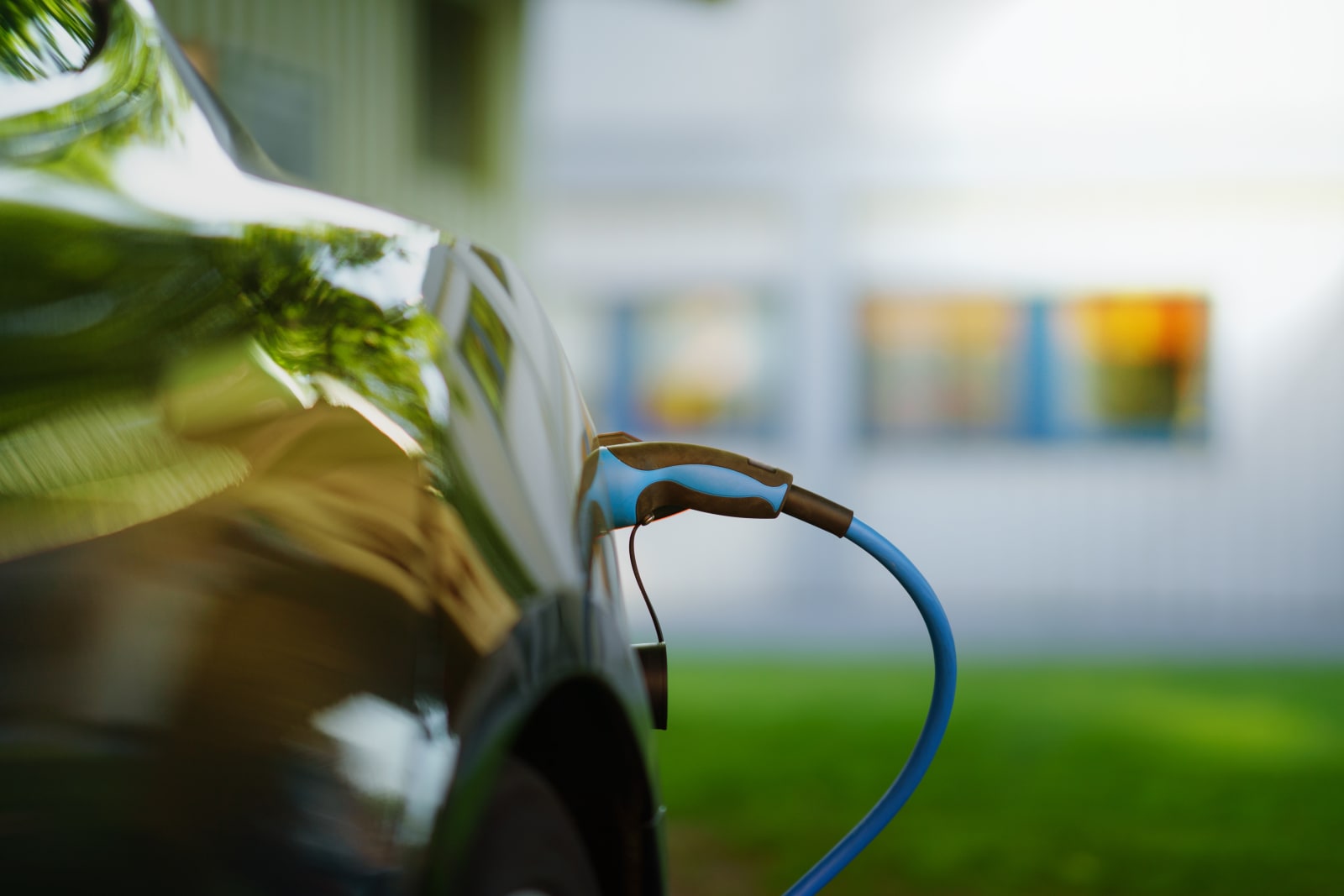
Electric vehicles have been helping Americans get around for more than a hundred years. At the start of the 20th century, a third of the vehicles on the road were battery powered. Ferdinand Porsche, founder of the sports car company that still bears his name, was among the first to develop an electric vehicle, debuting the P1 in 1898. Even Henry Ford dabbled with the technology in the early 1900s. Then again, it was also his mass-produced Model T that decimated demand for EVs in the first place.
Today, however, as American consumers face rising fuel prices and a deepening climate crisis, EVs are undergoing a resurgence in popularity. Over a million plug-in vehicles now drive on US roads and account for 2.5 percent of all new vehicle sales in the country. Though to be fair, that figure pales in comparison to the 55 percent of new car sales of the electric variety in Norway. More EVs are sold to Americans today than cars with manual transmissions. As electric vehicle sales continue to rise, automakers are taking notice and developing their own electric offerings in an effort to tap into the growing market.
Tesla helped create that market and remains an industry leader. The Model S was the bestselling plug-in vehicle between 2015 and 2017, only to be edged out in 2018 by the Model 3. In 2019, Tesla expanded its EV offerings with a pair of new vehicles, the polarizing (but still wildly popular) $39,900 Cybertruck, which debuted at the LA Auto Show in November, and a battery-powered ATV to go along with it. And come late next year, the company plans to put its electric semi into limited production as well.
Tesla is far from the only startup in the electric-vehicle market. Polestar announced in October that it will open its first EV store in Montreal by the end of next year, and Lunaz has quietly set about retrofitting classic luxury cars with 21st century conveniences like cruise control and regenerative braking. We also saw a surge of luxury SUVs with at least hybrid drivetrains, in 2019, such as the Bentley Bentayga, the Audi e-Tron, the Jaguar I-Pace, the (only slightly delayed) Mercedes EQC 400 and the Porsche Taycan all coming to market.
In fact, you'll be hard pressed to find an automaker in 2019 that isn't currently developing an EV platform. Lexus unveiled its UX 300e in November, Volkswagen showed off its EV wagon concept ahead of the LA Auto Show (immediately after unveiling its XC40 EV), and Toyota gave us a glimpse of its ultra-compact BEV at the Tokyo Auto Show. Lincoln is building an electric SUV of its own based on Rivian's "skateboard" vehicle platform. Lotus debuted its Evija supercar -- capable of charging fully in just nine minutes -- at the Guangzhou Auto Show in July. Nissan is developing a dual-motor EV based on its Leaf platform. BMW announced earlier this year that it will begin offering its all-electric Mini Cooper starting next March as well as an i4 with nearly 400 miles of range. Even niche luxury carmaker Karma is working on a pair of hybrid concepts.
Industry stalwarts like Ford and Harley-Davidson are similarly making the jump to EVs. Ford's Mustang -- the iconic American muscle car -- is getting an all-electric power plant as part of the company's Mach-E redesign. Harley, on the other hand, recently resumed production of its LiveWire motorcycle.
Simply put, electric vehicles aren't going away anytime soon. Even American's love affair with trucks, SUVs and crossovers can't diminish interest in electric drivetrains. Mercedes has already committed to having at least an EV option for all of its vehicle models by 2022 and GM announced earlier this month that most of its Cadillacs will be electrified by the end of the next decade. It's not just automakers taking notice of EVs. Germany's chancellor, Angela Merkel, has called for the installation of a million EV charging stations by 2030, more than fifty times the number available today. France set an even more ambitious goal of outlawing the sale of internal combustion vehicles by 2040.
Senate Minority Leader Chuck Schumer argued earlier this year in favor of spending $454 billion over 10 years to replace every gas-powered vehicle on American roads -- all 63 million of them -- with electric alternatives.
"Critics have long said that bold action on climate change would cost America money and jobs. This is not true," Schumer wrote in his NYT op-ed. "My plan is estimated to create tens of thousands of new, good-paying jobs in this country and should re-establish the United States as the world leader in auto manufacturing." Of course, that assumes Democrats take back control of Congress following next year's election.
ENGADGET'S YEAR IN REVIEW 2019
- The best gadgets of 2019
- Spotify's podcast power play
- Our favorite games of 2019
- Streaming won't get cheaper or easier
- 2020 is VR's make-or-break year
- The best of Big Picture 2019
- To all the books we hit this year
- The best user reviews of 2019
- How Twitch started to lose its grip on game streaming
- The worst tech of 2019
- Apple spent 2019 giving us most of what we wanted
- The tech CEOs' year of reckoning
- 2019 wasn't the year of foldables we were promised
- The next wave of electric vehicles will appear in 2020
- Monday 30th: Google's best phone in 2019 was its cheapest
- Monday 30th: Gaming in 2009 versus 2019
- Tuesday 31st: The year in cameras
- Tuesday 31st: Tech that defined the decade
